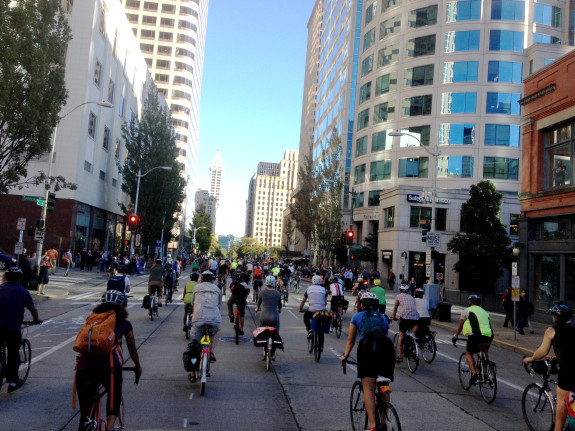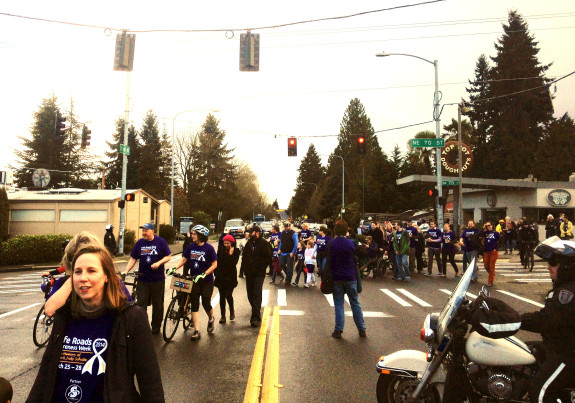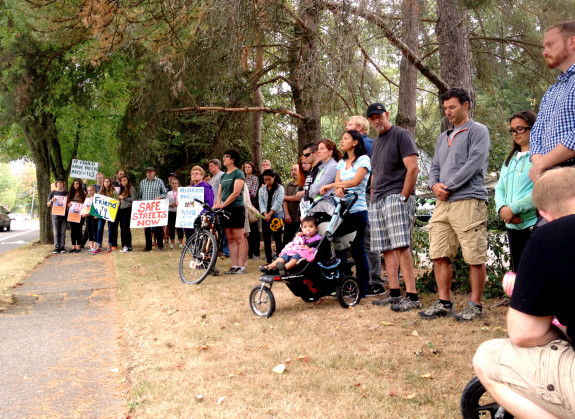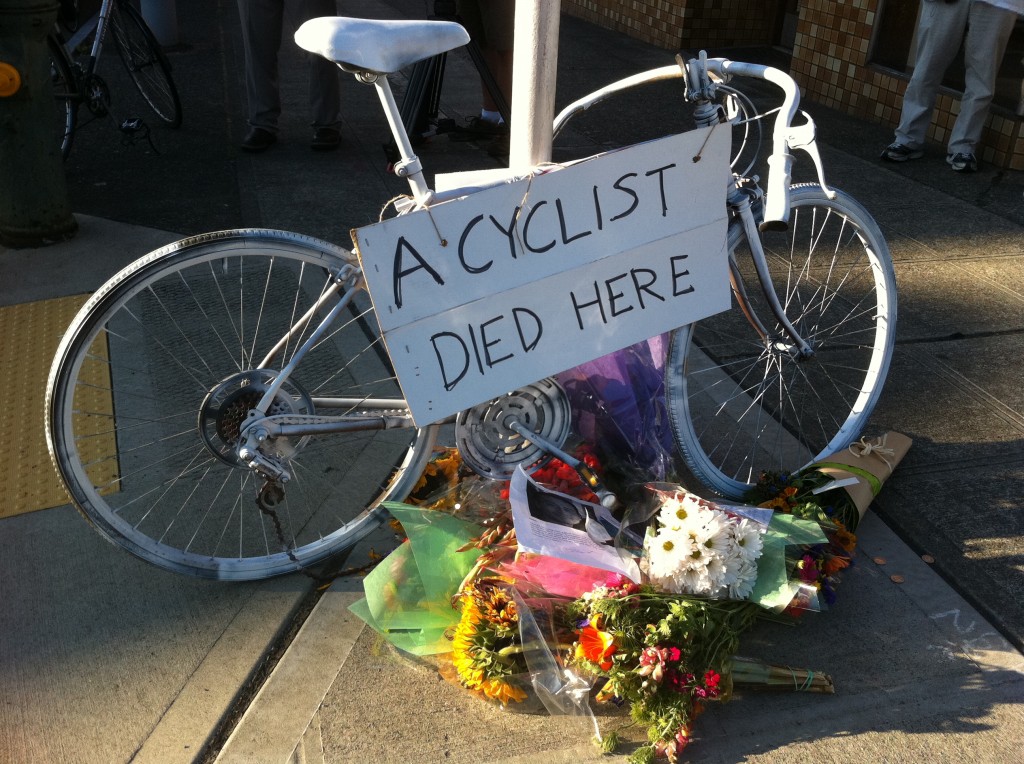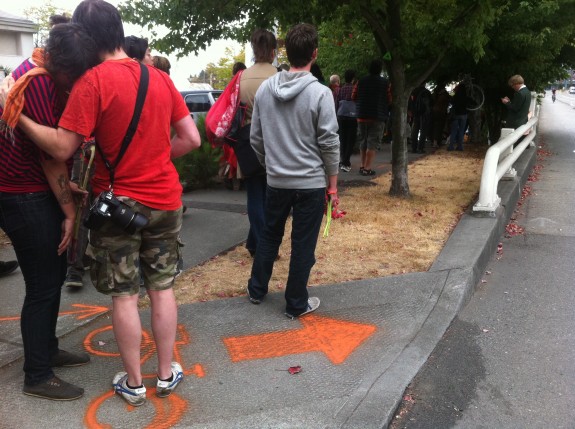
A memorial walk for Brian Fairbrother, September 2011. Friends used orange paint to mark the turn Brian apparently missed.
Mike Wang was biking home to his family one evening in July 2011 when a man driving an SUV made a quick left turn and killed him on Dexter Ave. It’s impossible to fill a hole in the world the size of Mike Wang, but through all the tears and pain and anger that followed, something truly powerful shifted in hearts across Seattle.
One month later, Brian Fairbrother was biking on a South Lake Union sidewalk marked as a city trail when he apparently missed the turn onto the Fairview Ave N bridge and crashed down a staircase. I have never seen anything as beautiful as the memorial his community of friends held for him, the response of creative people struggling to understand why Brian had to die.
But when young Robert Townsend was killed while biking deliveries in the U District just one month later, Seattle’s grief and pain and anger finally boiled over. It was too much. People shouldn’t die just for trying to get around our city. Whatever our society thinks we’re getting in return for all these deaths isn’t worth the horrible cost.
Not only can we end traffic violence, we realized, we have to.
That’s why the day after initial returns show the Move Seattle levy passing with a solid margin, I’m sitting at my keyboard trying to type this story through a stream of tears. The path from July 2011 to passing a measure that will invest at least $400 million into an unprecedented effort to end traffic violence — the amazing bloom of genuinely grassroots Seattle Neighborhood Greenways groups in all corners of our city, the Road Safety Summit that crafted our city’s first plan to end deaths and serious injuries, the remake of the Bike Master Plan that lays out the path to crafting safe streets for people of all ages and abilities — was paved by the lives of people who did not need to die.
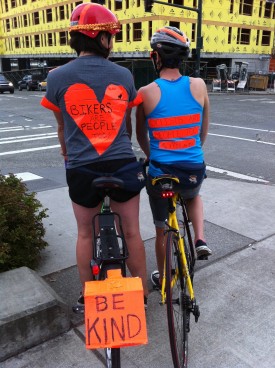
Two people call for care on the roads at the 2011 Safe Streets Social
An average of 16 people die every year on Seattle streets. Compared to other big US cities, that horrible total actually makes Seattle one of the safest.
No city in our nation has ever made a financial commitment to safe streets like this. Seattle is forging into uncharted territory. Over the next nine years, we have the responsibility to lead, to prove to cities around the state and the country that the public health menace of traffic deaths and injuries is preventable.
There will be a lot of time to celebrate this win, to thank all the people who worked so hard to get us to this point. There will be a lot of time to look forward, to guide and watchdog these investments. To keep the city honest and make sure politicians don’t cave when vital road safety changes face pushback from people afraid of change.
But today, I find myself looking backwards to moments like filling 2nd Ave with a sea of people biking in memory of a young mother and attorney named Sher Kung who had already made a huge impact on the world in her work to help overturn Don’t Ask Don’t Tell. We’ll never know what other important legal wins she would have won because someone in a truck turned into her as she biked to work last year.
Or marching down NE 75th Street in the rain with a huge crowd of people unable to comprehend the devastating scale of loss and pain felt by a family that, in one horrifying moment, two grandparents are killed and a new mother and child are critically injured by a man driving drunk.
Or shaking Ben Shoop’s hand and listening to him trying to stay strong in the wake of his son Caleb’s death in a Kenmore crosswalk. He’s not asking much, but he just can’t accept that nobody seems to be able to tell him how they are going to stop this from happening to anyone else.
Or witnessing the beautiful struggle of Brandon Blake, a powerfully inspiring man trying to come to terms with his life as a survivor of a traumatic brain injury.
Or the sound forever playing in my head as memorial riders biking past Mike Wang’s wife, daughter and father followed his family’s wishes by calling out, “Wang!” It was a timid cry from dozens of voices choking back tears together.
